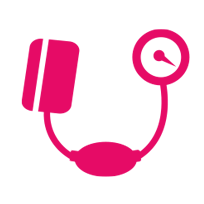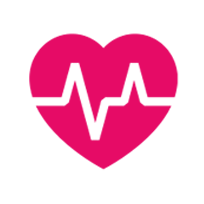
 Laut DAK Gesundheitsreport 2022 haben in NRW eine Millionen Menschen ein erhöhtes Herzinfarkt Risiko.
Laut DAK Gesundheitsreport 2022 haben in NRW eine Millionen Menschen ein erhöhtes Herzinfarkt Risiko.
Damit es gar nicht soweit kommt, biete ich den Kurs „Yoga Prävention Bluthochdruck“ an. Mein Kurs ist von den gesetzlichen Krankenkassen anerkannt und wird je nach Kasse anteilig, komplett oder 2 mal Jährlich bezahlt.
Kursbeschreibung:
Dieser Kurs basiert auf Forschungsergebnissen (siehe Referenzen*) zum Thema Bluthochdruck und Yoga, sowie auf grundlegendem Wissen im Ayurveda, das ich in der Weiterbildung „Yogatherapie“ bei Frau Dr. Gupta und Team innerhalb von 4 Jahren erworben habe.
Yoga bietet eine körperorientierte Entspannung an. Zu viel Stress und geringe Entspannungsfähigkeit wirken sich u.a. erhöhend auf den Blutdruck aus. Sorgt man nicht für Entspannung, funktioniert der Körper solange auf Hochtouren, bis ein Symptom und/ oder die Erschöpfung auftreten.
Yoga regt sanft die Herztätigkeit an, vertieft die Atmung und die Blutgefäße erweitern sich. Dies senkt den Druck des Blutes in den Gefäßen. Atemübungen, Meditation und Handgebärden (Mudras) aktivieren den entspannenden Teil des Nervensystems, den Parasympathikus, und die feinstoffliche Energie (Prana) kann überall die Zellen im Körper versorgen.
Der Kurs richtet sich an Teilnehmer Innen, die präventiv das Bluthochdruckrisiko minimieren möchten. Es können auch Bluthochdruck-Betroffene teilnehmen, wenn ihr Arzt dem ausdrücklich zugestimmt hat.
Die zentrale Rolle spielen Atemtechniken und leichte Bewegungsabfolgen , die man beide leicht in den Alltag integrieren kann, ergänzt durch Handgebärden (Mudras), die den Energiefluss optimieren, und geführte Meditationen.
Yogaanfänger*Innen sind sehr willkommen, Vorkenntnisse sind nicht erforderlich.
Mitzubringen sind: Yogamatte, Yogasitzkissen (ca. 25 cm hoch) und ggf. rutschfeste Socken
Referenzen*:
Es gibt aktuell (Juli 2022) 270 Artikel auf „Pub Med“ zum Thema „Hypertension Yoga“.
Einer (1) ist exemplarisch unten abgebildet.
Zum Nachlesen der exemplarisch ausgewählten acht Artikel, laden Sie sich bitte das Word-Dokument herunter. Bluthochdruck_Yoga_PubMed2022
Randomized Controlled Trial •
. 2021 Mar 20;21(1):550.
doi: 10.1186/s12889-021-10528-y.
(1) Effects of a health worker-led 3-month yoga intervention on blood pressure of hypertensive patients: a randomised controlled multicentre trial in the primary care setting
Raja Ram Dhungana 1 , Zeljko Pedisic 2 , Suira Joshi 3 , Mahesh Kumar Khanal 3 , Om Prakash Kalauni 3 , Anu Shakya 3 , Vijay Bhurtel 3 , Savyata Panthi 3 , K C Ramesh Kumar 3 , Binod Ghimire 4 , Achyut Raj Pandey 5 , Bihungum Bista 6 , Shiva Ram Khatiwoda 7 , Craig Steven McLachlan 8 , Dinesh Neupane 9 10 , Maximilian de Courten 2 11
Affiliations
• PMID: 33743622
• PMCID: PMC7981931
• DOI: 10.1186/s12889-021-10528-y
Free PMC article
Abstract
Background: Hypertension control remains a major challenge globally. A recent systematic review suggested that yoga has beneficial effects on reducing blood pressure. However, the role of yoga in hypertension management in primary health care has received little attention, and no studies have evaluated the impact of a yoga program fully delivered by health care staff on hypertension. This study, therefore, assessed the effects of a health worker-led yoga intervention on blood pressure reduction among hypertensives patients in the primary care setting.
Methods: This was a multicentric, two-arm, randomised trial conducted among hypertensive patients in seven Ayurveda Health Centres in Nepal between March 2017 and June 2018. One hundred and twenty-one participants who were on or without medications were randomised to intervention (n = 61) and wait-list control (n = 60) groups using stratified block randomisation. Participants in the intervention arm received an intervention consisting of an initial five-day structured yoga training at the centres and then a further home-based practice of yoga for five days a week for the following 90 days. Both intervention and control groups also participated in a 2-h health education session. The primary outcome of this trial was systolic blood pressure at 90-day follow-up. Data were analysed on an intention-to-treat basis using linear mixed-effects regression models.
Results: We included all 121 study participants (intervention/control = 61/60) in the primary analysis (52.1% males; mean ± SD age = 47.8 ± 10.8 years). The difference in systolic blood pressure between the intervention group and the control group was – 7.66 mmHg (95% CI: – 10.4, – 4.93). For diastolic blood pressure, the difference was – 3.86 mmHg (95% CI: – 6.65, – 1.06). No adverse events were reported by the participants.
Trial registration: This trial was prospectively registered with the Clinical Trial Registry of India [ CTRI/2017/02/007822 ] on 10/02/2017.
